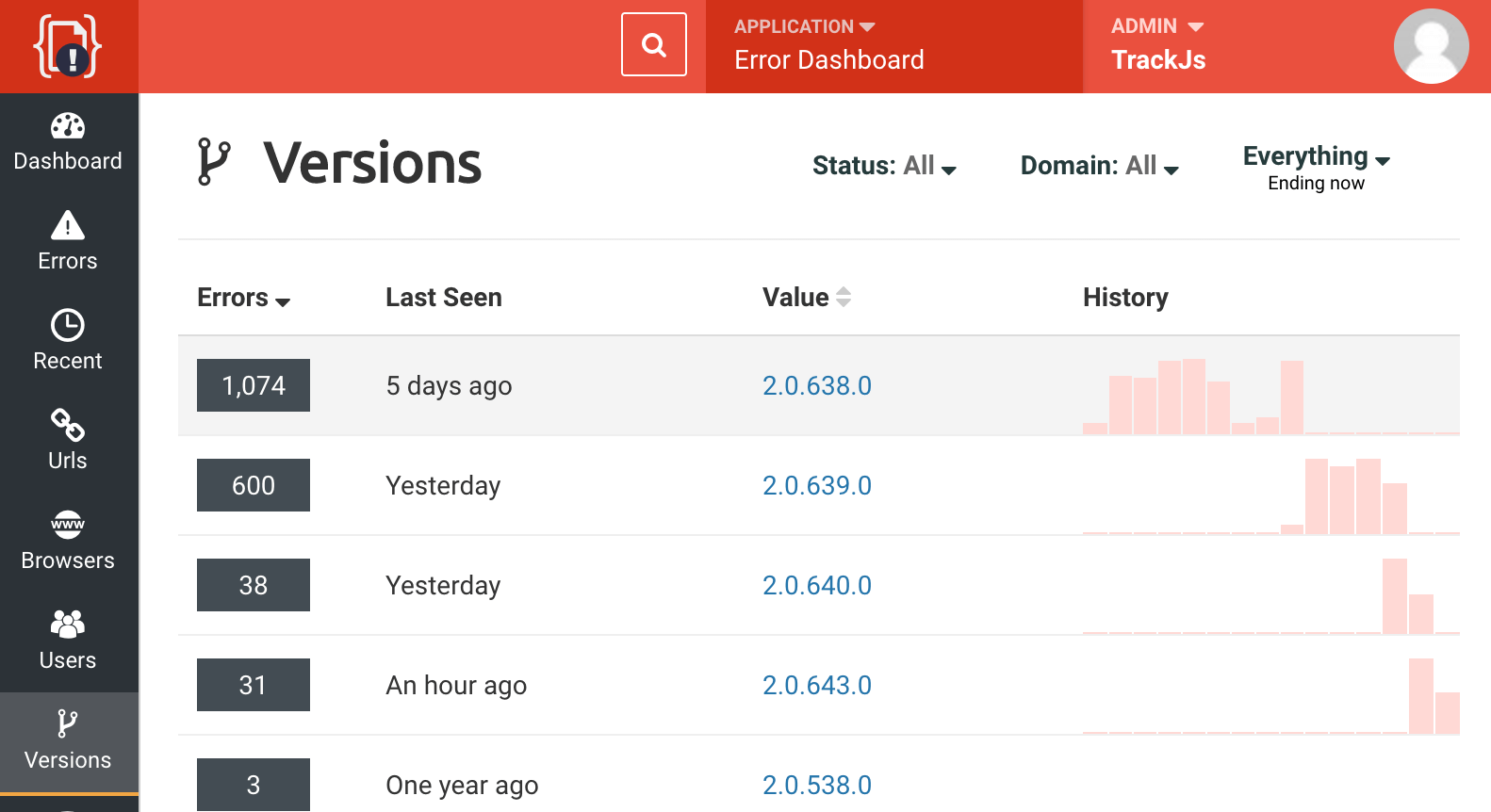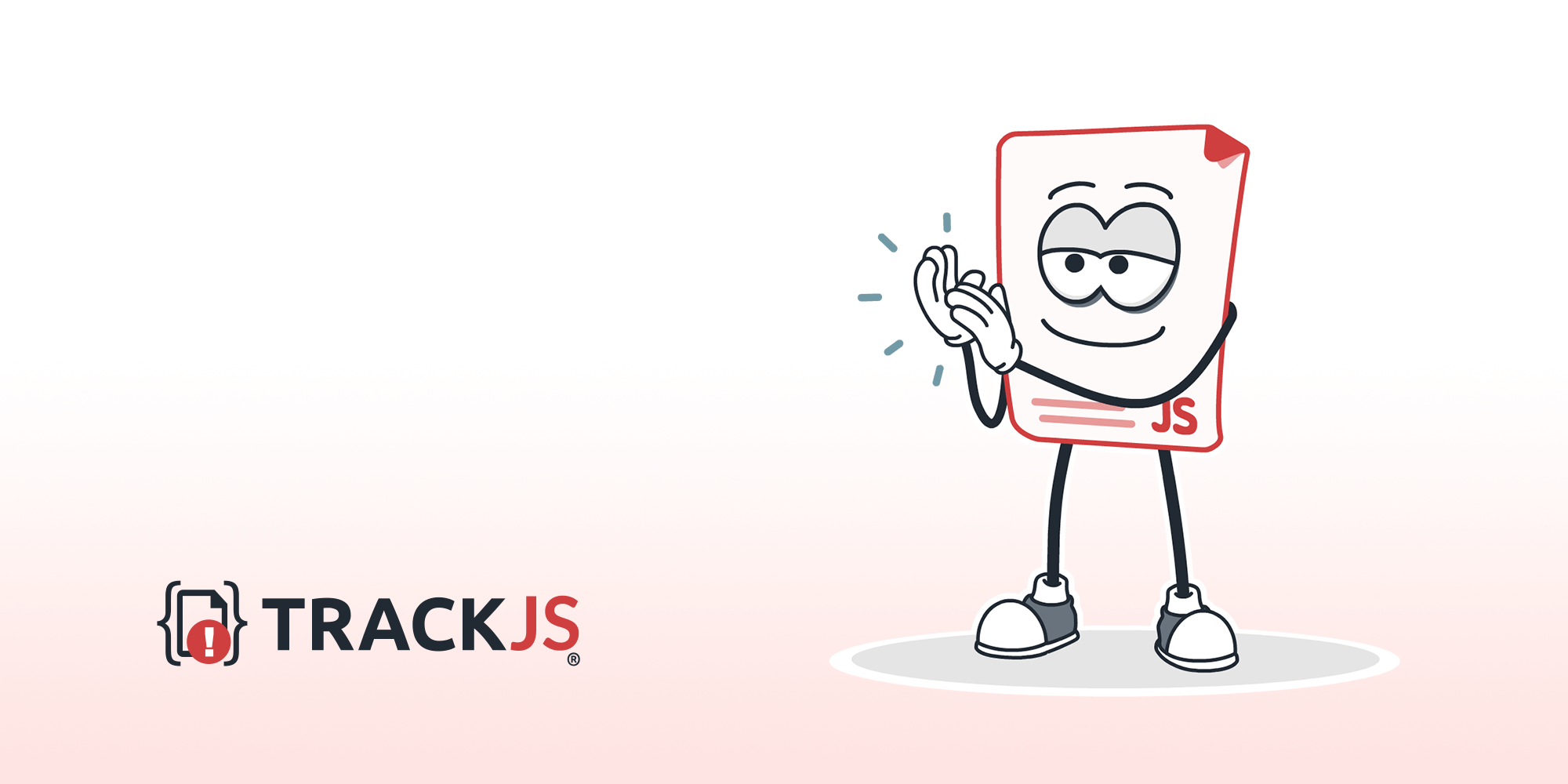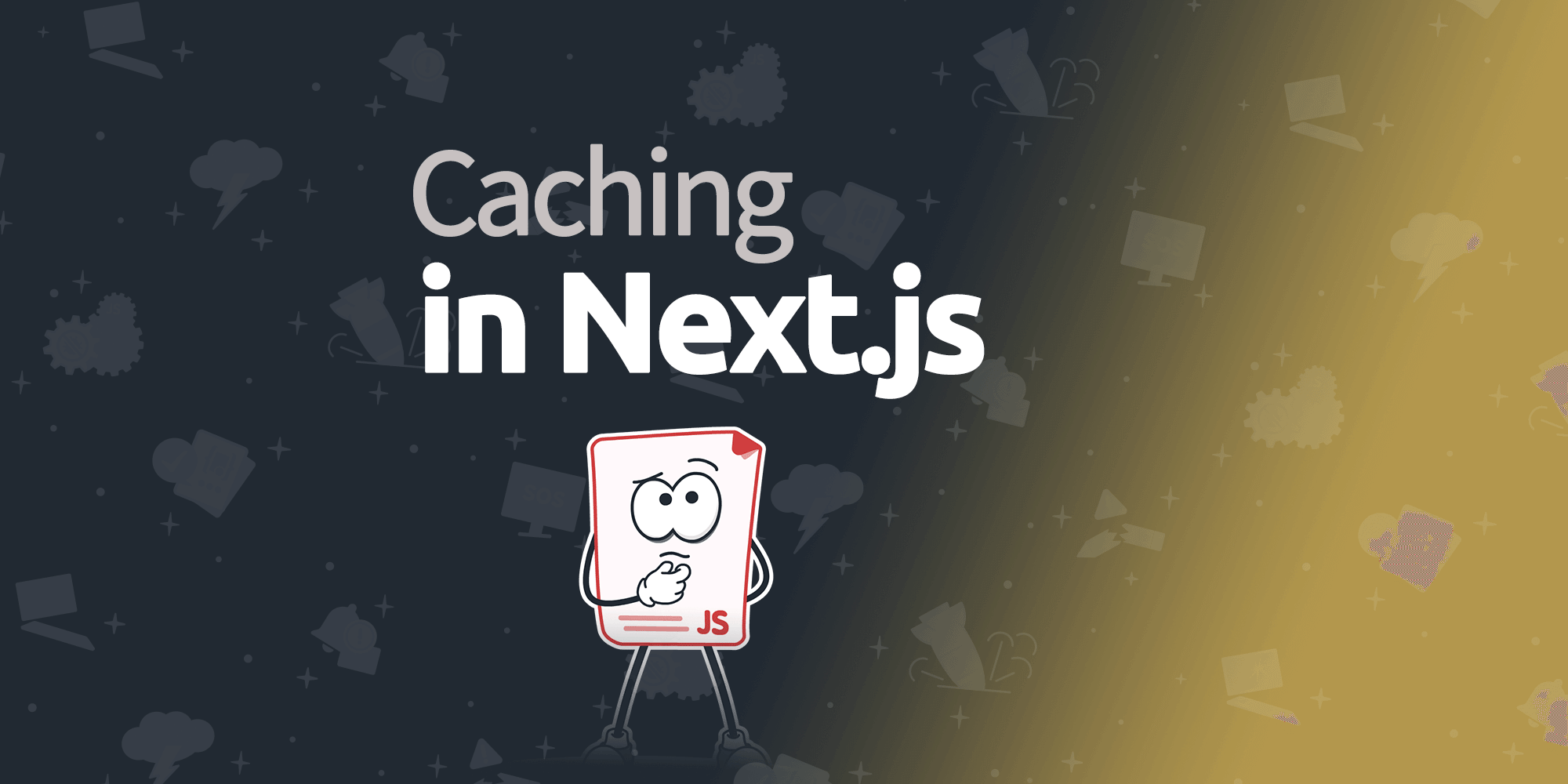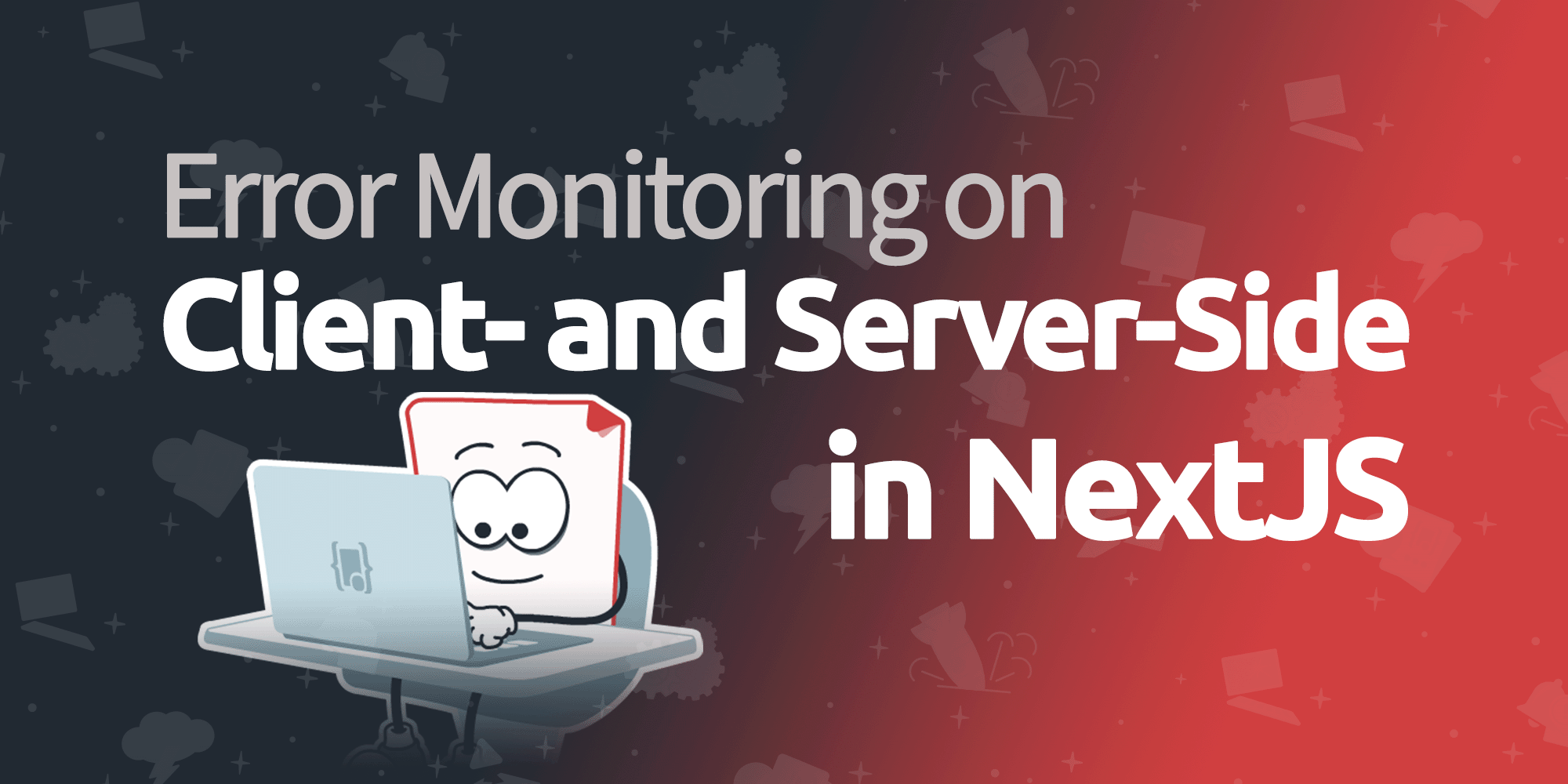
Application Versions
These days it’s common to release new versions of a web application daily, or even multiple times a day. At any given time there could be multiple versions of a code base running live in production. A new version might be getting soak tested on a pilot server, while the previous stable version is being served to most customers. When it comes to JavaScript error monitoring, it’s important to know if a new application release is having issues that old releases were not. (Or whether a new release resolved a previous bug.)
Application Version: First Class Citizen
Our customers have long been able to include which application code version is running when a JavaScript error occurs. We surfaced that data in the error details screen for an individual error, but that was as far as we took it. With the growing importance of versioning in modern web apps, we’ve been getting feedback that customers would like to make application version a top level grouping and filtering value. They want to aggregate errors by application version, or drill in and see only the errors affecting a specific deploy.
I’m happy to report that we’ve taken our first step in that direction. When you login to the main TrackJS dashboard, you’ll notice a new top-level menu item called “Versions”. If you’ve been supplying us with version information, you’ll see a screen with errors grouped by version, with histograms showing their frequency. (Don’t worry, if you haven’t been sending us version data, you’ll be shown a configuration code snippet so you can start right away!)

If you drill in and selected a specific version, you’ll see a list of all the errors associated with it. You’ll also get the top messages, urls, and browsers for that version. Finally, and perhaps most useful of all, you can add that version as a filter to the entire TrackJS UI.

You’ll be able to treat version just like domain, time ranges, error status or any of the other top-level filters.
What’s Next?
This is our first crack at elevating application version to a first-class citizen. We have a few other ideas to really unlock value with it, but we’d love to get your feedback too!
Finally, if you’re not currently using TrackJS, but you’re deploying multiple versions of a JavaScript based web application in production, sign up today and try us out! We think you’ll get great context, and we’re always iterating and improving our capabilities!



